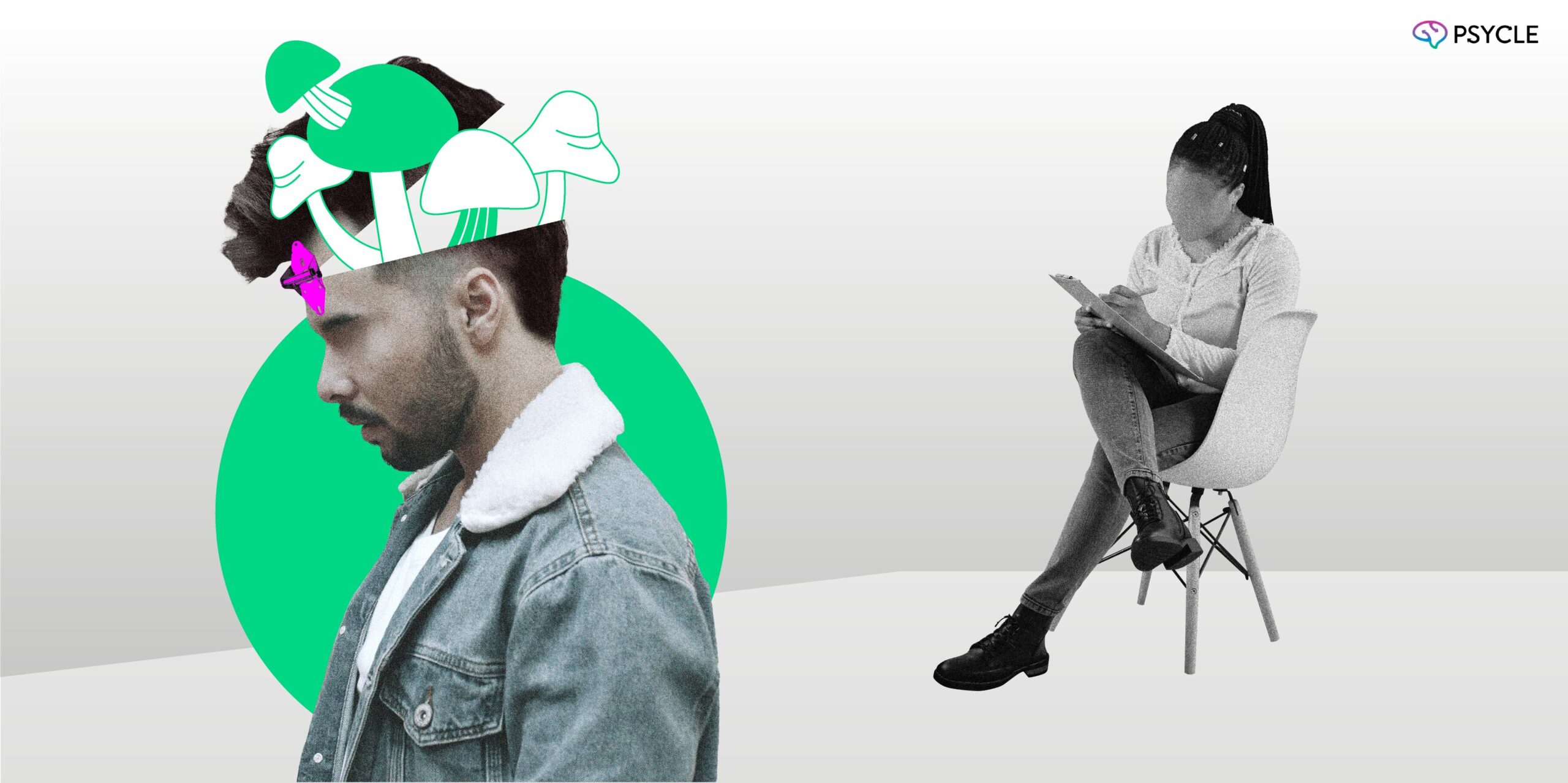Psychedelics are becoming increasingly well-regarded as useful mental health treatment tools. Clinical research shows psilocybin–the active ingredient in magic mushrooms– can help treat psychological disorders when used in a therapeutic context. This article will discuss the current landscape of mushroom and psilocybin treatments for mental health.
Understanding Psilocybin Therapy
In 2006, University of Arizona researchers showed psilocybin was safe and effective for treating obsessive-compulsive disorder (OCD). The findings kick-started a resurgence in psychedelics following the first wave of research in the 1960s.
Since then, several research studies have investigated psilocybin’s usefulness in treating mental health disorders. Some pivotal findings included a 2016 New York University study showing psilocybin therapy markedly reduced depression and anxiety in patients with terminal illnesses and related end-of-life distress. In 2018, an Imperial College London study found psilocybin had significant and sustained antidepressant effects in treatment-resistant depression patients. Last year, psilocybin significantly reduced drinking behavior and cravings in people with alcohol abuse disorder.
In light of these positive findings, research groups across the world are investigating how psilocybin can be used in mental health treatment for a variety of psychological disorders, including post-traumatic stress disorder (PTSD) and eating disorders. Psilocybin treatment has also demonstrated positive physical health effects on headache disorders.
Despite its promise, there’s a lack of long-term safety data about psilocybin treatment, and researchers are still determining the safest and effective treatment protocols. For these reasons, medical psilocybin treatment is illegal in most countries and can only be accessed medically through participating in clinical research.
One exception is Australia, where supervised psilocybin treatments were legalised for certain types of depression last year. In Canada, under the Special Access Programme, psilocybin treatments may also be requested by healthcare professionals for patients with “severe and life-threatening disorders.”
Mushroom Treatments vs Mushroom Ceremonies
As well as treating mental health disorders, people also use psilocybin and psilocybin-containing mushrooms for personal and spiritual development. Magic mushrooms’ purported benefits include increased insight, openness, empathy, and creativity.
Anthropological evidence suggests psilocybin-containing mushrooms may have been used in this context for centuries. However, in recent years, psychedelic mushrooms have gained global traction in the wellness industry.
Many facilitators are now offering healing mushroom ceremonies as part of a retreat or stand-alone experiences. A typical ceremony involves ingesting mushrooms or psilocybin in a group setting, often alongside ceremonial practices, such as making offerings and giving prayers.
Unlike psilocybin treatment, facilitators may not be trained in mental health. In addition, there is often less personal and follow-up support.
Mushroom ceremonies, therefore, have a much more significant mental health risk and are generally not advised for people with severe mental health conditions.
Understanding the Side Effects of Mushroom Treatment
Like all drugs, psilocybin is not without side effects. Some common side effects associated with psilocybin and psilocybin-containing mushrooms include:
- Nausea and vomiting
- Dizziness or lightheadedness
- Increased anxiety or paranoia
- Distorted sense of time and space
It’s worth noting that these side effects are usually mild and temporary, lasting only a few hours after treatment. However, in rare cases, some individuals may experience more severe side effects, such as:
- Psychotic episodes
- Flashbacks or hallucinations
- Extreme anxiety and paranoia
Long-term challenges can be more complex to characterize. For instance, a recent study found derealisation–feeling like the world isn’t real– and disconnection were common themes in people’s reported long-term challenges following psychedelic use.
Another risk researchers are beginning to learn more about is Hallucinogen Persisting Perception Disorder (HPPD) – ongoing perception changes that carry on for months once the effects of a psychedelic drug have worn off. You can learn more about HPPD and current research on and support for the condition by visiting the Perception Foundation non-profit website.
Factors to Consider in Mushroom Treatment
As you explore the option of mushroom treatment therapy, it is essential to understand the critical factors that can influence your experience and the effectiveness of the treatment.
Controlled Therapeutic Environment: The location and environment in which you undergo mushroom retreats or therapy can significantly impact your experience. It is crucial to ensure the setting is controlled and safe, with qualified practitioners who can guide you through the treatment.
Qualified Practitioners: A qualified practitioner can help you navigate the ups and downs of the therapy, ensuring that you are safe mentally and physically.
Integration support: Ensuring you have adequate support following your experience to address any challenges that may arise during or after psilocybin.
Incorporating these factors into your decision to undergo mushroom treatment can help optimize the experience and ensure the best possible outcomes for your mental health.
Conclusion
As more individuals explore the benefits of mushroom treatment therapy, we can expect to see new research and studies emerge that shed further light on both its effectiveness and safety. While the industry is still in its infancy, those wanting to explore the mental health benefits of psilocybin could consider attending a mushroom ceremony. However, this choice comes with several risks and generally suits the context of personal and spiritual development rather than directly addressing mental health symptoms.

